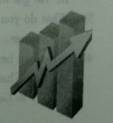| 完形填空。 | ||||
| Life is like potato salad; when it's shared it becomes a picnic. When my three children were young, my husband, Roy, and I were very 1 . "Can we go on a picnic, Mom?" my six-year-old daughter, Becky 2 . "Please". I had said no so many times in the 3 months, and I decided the usual Saturday morning chores (日常工 作) could wait. To her 4 , I agreed. I prepared a few sandwiches and 5 a cooler with ice and drinks and called Roy 6 . My eleven-year-old twin sons put the cooler and the picnic basket in the trunk and off we went to spend some 7 time together as a family. About the time I got the lunch 8 out on the table, Roy arrived on the 9 . That was one of the happiest meals we ever shared together. The meal was filled with 10 . We felt a closeness that hadbeen hidden by work and school 11 for so many months. Roy and the boys 12 rocks into the lake. Becky fed the ducks and I sat quietly on the picnic table, 13 God for blessing me with such a wonderful family. That night as our 14 went to bed, I kissed their cheeks and realized what a wonderful life I had. As I walked out of the room it dawned on me that even the busiest 15 could become a picnic when it's shared with the ones you 16 . Even though the kids have now grown up and 17 from home, I can still remember how I felt that day while sitting at the picnic table. Maybe today would be a good time to 18 potato salad, call all of my grown kids, feed some hungry 19 and skipped a few rocks into the lake. Since life is like potato salad, let's make it a 20 . | ||||
|
1-5: CABDD 6-10: CBAAD 11-15: DCCBB 16-20: DDBAC

